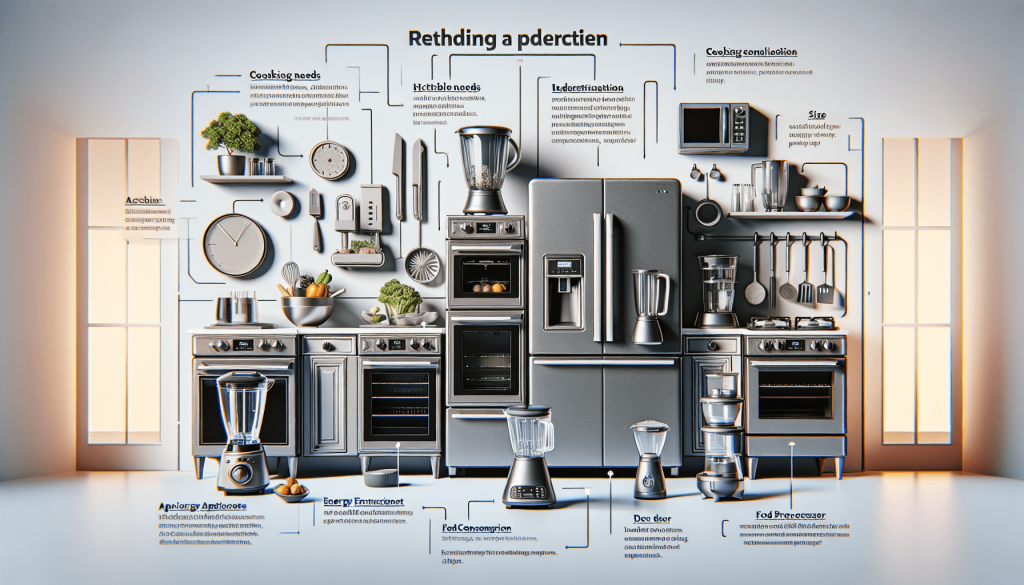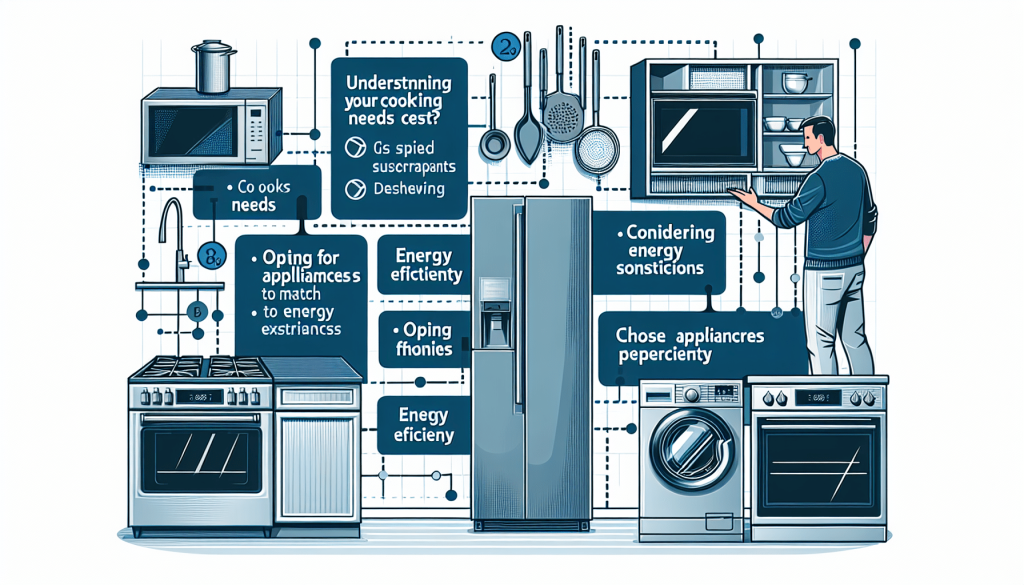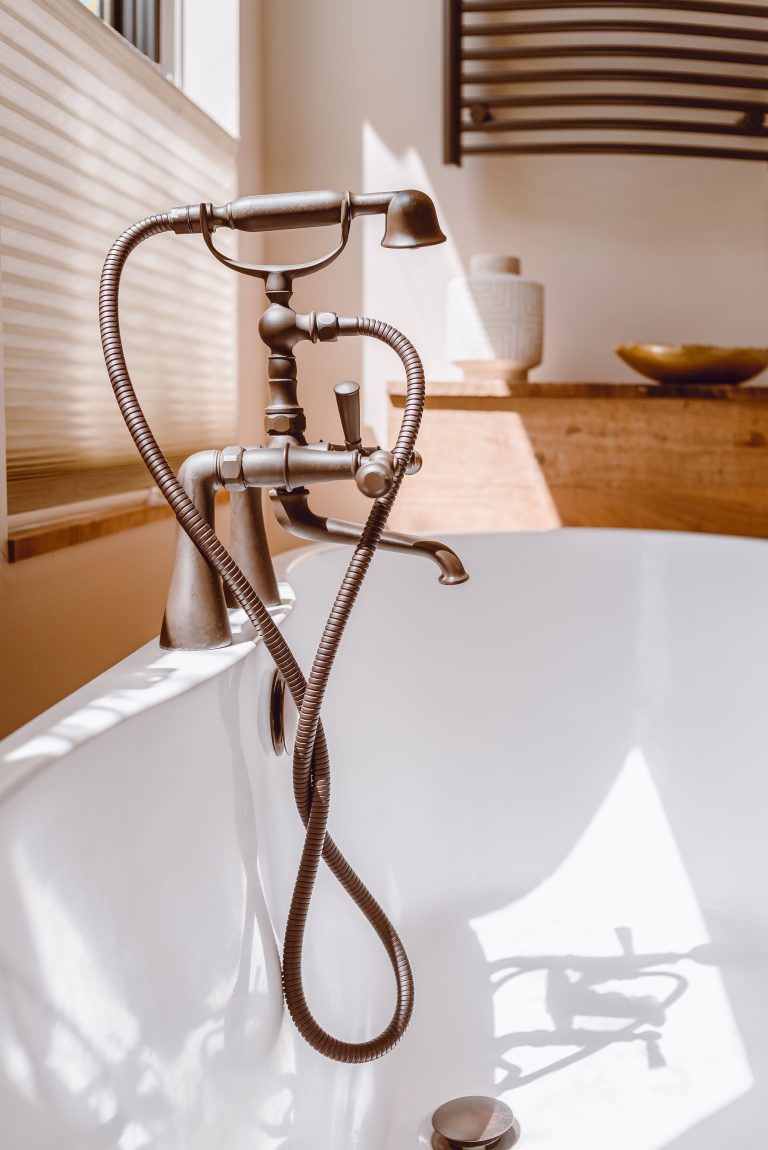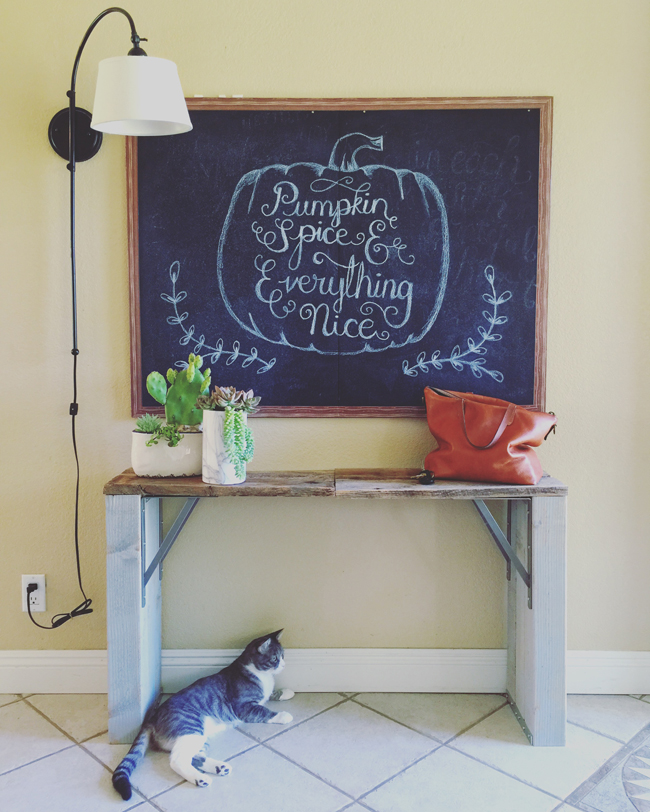Are you feeling overwhelmed by the countless kitchen appliances available on the market, unsure of which ones are right for your cooking needs? Don’t fret, because in this article, we will guide you through the process of choosing the perfect kitchen appliances. Whether you’re a novice cook or a seasoned chef, we’ve got you covered. From selecting the ideal oven for precise baking to finding the perfect blender for your smoothie cravings, we’ll provide you with practical tips and expert advice to make your decision-making process a breeze. Say goodbye to confusion and hello to a well-equipped kitchen!
Table of Contents
ToggleConsider Your Cooking Style
Identify Your Cooking Preferences
When choosing the right kitchen appliances for your cooking needs, it’s important to first identify your cooking preferences. Do you enjoy baking and need a reliable oven? Are you someone who loves to experiment with different recipes and therefore need a versatile range? Understanding your cooking preferences will help you determine which appliances are essential for your kitchen.
Assess Your Cooking Frequency
Another factor to consider when choosing kitchen appliances is how often you cook. If you’re someone who cooks daily for a large family, you may need appliances with larger capacities and more advanced features. On the other hand, if you only cook occasionally or for yourself, you might prioritize compact and energy-efficient appliances that fit your needs.
Evaluate Your Cooking Techniques
Different cooking techniques require specific appliances. If you love grilling or searing, a gas stove or range with high heat capabilities may be ideal for you. If you prefer steaming or boiling, an electric stove or range with precise temperature control might be more suitable. Evaluate your cooking techniques and choose appliances that align with your preferred methods of cooking.
Analyze Your Kitchen Layout and Size
Measure Available Space
Before purchasing any kitchen appliances, it’s essential to measure the available space in your kitchen. Consider the dimensions of the area where each appliance will be placed, as well as any clearance requirements. This will help you ensure that the appliances you choose will fit seamlessly into your kitchen layout without hindering your movement or causing any obstructions.
Consider Kitchen Traffic
Kitchen traffic refers to the flow of people moving in and out of the kitchen while cooking or performing other tasks. Take into account the location of your appliances in relation to the primary traffic areas. For example, if you have a bustling kitchen with multiple cooks, it might be wise to strategically place the refrigerator and stove to minimize congestion and ensure smooth movement.
Evaluate Cabinet and Countertop Space
Assess the amount of cabinet and countertop space you have in your kitchen. This will help determine the size and configuration of the appliances you choose. If you have limited counter space, you may want to consider appliances that can be built-in or mounted under cabinets to maximize available space. Additionally, evaluate your storage needs and ensure that there is enough room to store your appliances when not in use.
Determine Your Budget
Set a Realistic Budget
Before embarking on your search for kitchen appliances, it’s important to set a realistic budget. Determine how much you are willing to spend on each appliance and stick to your budget. Keep in mind that while investing in high-quality appliances may come with a higher initial cost, they often offer better performance, durability, and energy efficiency in the long run.
Prioritize Essential Appliances
When allocating your budget, prioritize the essential kitchen appliances based on your cooking needs. These typically include a stove or range, refrigerator, and possibly a dishwasher. By allocating a larger portion of your budget to these appliances, you can ensure that you have reliable and efficient options for your day-to-day cooking activities.
Research Price Ranges
Take the time to research the price ranges of the appliances you are considering. This will give you an idea of the average cost and help you make informed decisions. Keep in mind that prices can vary based on factors such as brand, size, features, and energy efficiency. Compare prices from different retailers and consider sales or promotions that may be available.
Assess Your Power Source
Check Electrical Capacity
Before choosing electric appliances, check the electrical capacity of your kitchen. Ensure that your electrical system can accommodate the power needs of the appliances you plan to install. If necessary, consult with a licensed electrician to determine if any modifications or upgrades are required to support your chosen appliances.
Consider Gas or Electric Appliances
Decide whether you prefer gas or electric appliances based on your cooking style and preferences. Gas stoves and ranges provide instant heat control, making them a popular choice for professional chefs and cooking enthusiasts. Electric appliances, on the other hand, offer precise temperature control and are often more energy-efficient. Consider the pros and cons of each option and choose the power source that aligns with your needs.
Evaluate Ventilation Needs
Proper ventilation is crucial in the kitchen to eliminate cooking odors, excess heat, and potentially harmful gases. Evaluate the ventilation options in your kitchen and determine which appliances require adequate ventilation. For example, if you opt for a gas stove or range, you will need a ventilation hood to remove fumes and maintain air quality. Consider the layout of your kitchen and the availability of ventilation options when selecting appliances.
Identify Essential Appliances
Choose a Reliable Stove or Range
One of the most essential kitchen appliances is a reliable stove or range. Consider factors such as the number of burners, size of the oven, and heat control options. Gas ranges typically offer more precise heat control, while electric ranges provide even heating. Choose a stove or range that suits your cooking preferences and meets your capacity requirements.
Select a Refrigerator to Fit Your Needs
A refrigerator is a vital appliance in any kitchen. Consider the size, storage capacity, and features such as adjustable shelves, humidity-controlled drawers, and ice/water dispensers. If you frequently buy fresh produce, a refrigerator with ample storage for fruits and vegetables might be beneficial. Assess your family’s needs and choose a refrigerator that provides enough storage space while being energy-efficient.
Consider Dishwasher Options
A dishwasher can be a game-changer in terms of convenience and time-saving. When selecting a dishwasher, consider factors such as capacity, noise level, energy efficiency, and cleaning features. Some dishwashers offer various wash cycles and options for delicate items or heavily soiled dishes. Evaluate your dishwashing needs and choose a dishwasher that aligns with your requirements.
Evaluate Additional Appliances
Decide on a Microwave
Microwaves are versatile appliances that offer quick and convenient cooking options. Consider the size, wattage, and features such as defrost, convection, and sensor cooking. If you frequently rely on microwave cooking or reheating, opt for a microwave with sufficient capacity and advanced features to meet your needs.
Consider the Benefits of a Food Processor or Blender
Food processors and blenders can be valuable assets in the kitchen, especially if you enjoy making homemade sauces, soups, or smoothies. Assess your cooking habits and decide whether you would benefit from these appliances. Food processors are ideal for chopping, slicing, and grating, while blenders excel at blending and pureeing. Look for models that offer ease of use, durability, and multiple blade attachments to expand your culinary possibilities.
Assess the Need for a Toaster Oven
Toaster ovens provide a convenient alternative to traditional ovens when cooking or reheating smaller portions. Consider the size, convection capabilities, and additional features such as toasting, broiling, and baking. If you have limited counter or oven space, a toaster oven can serve as a versatile appliance for various cooking needs.
Determine Appliance Features
Assess Energy Efficiency Ratings
Energy efficiency is an important factor to consider when choosing kitchen appliances. Look for appliances with high energy efficiency ratings, as they can lead to significant savings on utility bills over time. Energy-efficient appliances often bear the ENERGY STAR label, indicating that they meet or exceed strict efficiency standards set by the Environmental Protection Agency. Prioritizing energy efficiency can also have a positive impact on the environment.
Consider Smart Appliance Connectivity
Smart appliances offer advanced features and connectivity options that enable remote control, monitoring, and automation. Consider whether integrating smart appliances into your kitchen would enhance your cooking experience and align with your lifestyle. Features such as Wi-Fi connectivity, mobile apps, and voice control can provide convenience and flexibility in managing your kitchen appliances.
Evaluate Cleaning and Maintenance Features
Cleaning and maintenance are essential aspects of owning kitchen appliances. Look for appliances that offer easy-to-clean surfaces, dishwasher-safe components, and self-cleaning options. Features such as removable grates, non-stick interiors, and fingerprint-resistant finishes can simplify the cleaning process and help keep your appliances looking pristine.
Read Reviews and Compare Brands
Research Customer Reviews and Ratings
Before making a final decision, it’s important to read customer reviews and ratings of the appliances you are considering. Online platforms and consumer websites provide valuable insights into the performance, reliability, and user experience of various brands and models. Pay attention to common feedback and experiences shared by other users to make an informed choice.
Compare Performance and Durability
While researching appliances, assess their performance and durability. Look for appliances with solid construction, high-quality materials, and reputable brands known for their reliability. Evaluate user feedback regarding the longevity and functionality of the appliances to determine their durability and whether they can withstand the demands of your cooking needs.
Consider Brand Reputation and Warranty
Brand reputation can be an indicator of the quality and reliability of kitchen appliances. Consider brands that have established a positive reputation in the industry and are known for producing durable and innovative appliances. Additionally, review the warranty offered by each brand to ensure you have adequate coverage in case of any issues or defects.
Visit Showrooms and Appliance Stores
Browse Different Models in Person
Visiting showrooms and appliance stores provides an opportunity to see and interact with different models firsthand. Compare the aesthetics, features, and build quality of various appliances to make an informed decision. Take measurements and visualize how each appliance will fit in your kitchen to ensure a seamless integration.
Seek Expert Advice
Store experts or kitchen designers can provide valuable advice and recommendations based on your specific needs and kitchen layout. Discuss your cooking preferences, budget, and space constraints with the experts to receive personalized guidance. They can offer insights into the latest trends, technological advancements, and energy-efficient options available in the market.
Take Advantage of Appliance Demonstrations
Appliance demonstrations are a great way to understand the features and functionalities of different models. Attend demonstrations at appliance stores or request demonstrations from knowledgeable staff to see how each appliance operates and whether it meets your expectations. This hands-on experience can help you feel confident in your decision and ensure that the appliances you choose align with your cooking needs.
Consider Long-Term Investment
Think about Resale Value
While choosing kitchen appliances, it’s worth considering their potential resale value. Opting for appliances from reputable brands and with desirable features can enhance the overall value of your kitchen. Keep in mind that while trendy or unique appliances may appeal to you now, they may not have the same appeal to potential buyers in the future. Choose appliances with timeless designs and features that can stand the test of time.
Evaluate Appliance Lifespan
Appliances are long-term investments, so it’s crucial to consider their lifespan. Research the average lifespan of the appliances you are considering to ensure they align with your long-term needs. Appliances with longer lifespans can save you money in the long run, as you won’t need to replace them as frequently. Look for appliances that are known for their durability and reliability.
Consider Future Needs and Upgrades
Anticipate your future needs and potential upgrades when choosing kitchen appliances. If you plan on expanding your family or entertaining guests more frequently, consider appliances with larger capacities. Additionally, assess the compatibility and availability of compatible accessories or add-ons that can enhance the functionality of your appliances. By considering future needs, you can invest in appliances that will continue to meet your requirements over time.
In conclusion, choosing the right kitchen appliances for your cooking needs requires careful consideration of factors such as your cooking preferences, budget, kitchen layout, available space, and power source. Assessing your cooking techniques, prioritizing essential appliances, and evaluating additional appliances will help you narrow down your options. Features such as energy efficiency, smart connectivity, cleaning and maintenance, and warranties should also be taken into account. Reading reviews, comparing brands, visiting showrooms, and seeking expert advice can provide valuable insights. Finally, considering the long-term investment, including resale value, appliance lifespan, and future needs, will ensure that you make a well-informed decision. By following these guidelines, you can select the kitchen appliances that best suit your cooking style and create a functional and efficient kitchen space.








